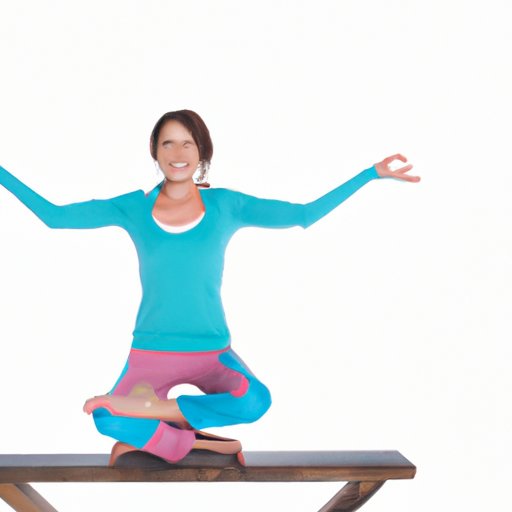Introduction
Balance is an essential aspect of our physical well-being, allowing us to move, stand, and walk without falling or stumbling. A good sense of balance also helps us maintain proper posture, which can alleviate back pain and other musculoskeletal issues. Unfortunately, balance problems are a common issue, especially among older adults. The good news is that there are several ways to improve balance, including exercise, nutrition, sleep, environmental changes, and mindfulness practices. Let’s explore these tips in more detail.
Exercise
Regular exercise is critical for maintaining good balance, as it helps strengthen the muscles that support posture and balance. Additionally, exercise can improve overall mobility, coordination, and flexibility, all of which are important for reducing the risk of falls. Some of the best exercises for balance include:
- Yoga: This low-impact activity helps improve balance, flexibility, and core strength. Some yoga poses that can help improve balance include the tree pose, the warrior III pose, and the half-moon pose.
- Tai Chi: This ancient Chinese practice combines slow, deliberate movements with mental focus and breathing exercises. Tai Chi has been shown to improve balance and reduce falls among older adults.
- Strength Training: Building muscle strength can also help improve balance. Exercises like lunges, squats, and leg presses can target the muscles in the legs and core that are crucial for balance.
Nutrition
Our diet plays a significant role in our overall health and well-being, including our balance. Nutrients like Vitamin D, calcium, magnesium, and potassium have all been shown to help improve balance. Some of the best foods to incorporate into your diet include:
- Leafy Greens: Dark, leafy greens like kale and spinach are rich in magnesium, which is essential for nerve and muscle function.
- Yogurt: Yogurt is a good source of calcium, which helps build strong bones and muscles.
- Salmon: Fatty fish like salmon are rich in Vitamin D, which helps the body absorb calcium and regulate muscle function.
Sleep
Getting enough quality sleep is critical for maintaining good balance. Sleep helps our bodies recover and repair from the previous day’s activities, allowing us to feel refreshed and energized. Poor sleep quality can affect balance, as it can lead to dizziness and difficulty with coordination. Here are some tips for better sleep:
- Stick to a Regular Sleep Schedule: Try to go to bed and wake up at the same time every day, even on weekends.
- Create a Relaxing Sleep Environment: Keep your bedroom cool, dark, and quiet, and avoid using electronic devices before bed.
- Avoid Stimulants: Caffeine, alcohol, and nicotine can all interfere with sleep quality, so it’s best to avoid them before bedtime.
Environmental Changes
Making changes to your home environment can also help improve balance and reduce the risk of falls. Here are some tips to consider:
- Install Grab Bars and Railings: Grab bars and railings can provide support and stability in areas like the bathroom and stairwells.
- Remove Tripping Hazards: Keep floors and walkways clear of clutter and loose rugs to reduce the risk of tripping.
- Improve Lighting: Make sure all areas of your home are well-lit, especially stairwells, hallways, and entryways.
Mindfulness Practices
Practicing mindfulness can also help improve balance, as it helps increase awareness of our body and surroundings. Mindfulness practices like meditation and deep breathing can help reduce stress and anxiety, which can affect balance. Here are some mindfulness practices to consider:
- Meditation: Meditation involves focusing on the present moment and reducing distractions. There are several mindfulness meditation apps available that can guide you through the process.
- Breathing Exercises: Deep, slow breathing can help reduce stress and improve focus. Try taking a few deep breaths before standing up or walking.
- Tai Chi: As mentioned earlier, Tai Chi combines slow, deliberate movements with mental focus and breathing exercises, making it an excellent mindfulness practice for improving balance.
Conclusion
Good balance is essential for our overall physical health and well-being, and there are several ways to improve it. Adding exercises, such as yoga and tai chi, into your daily routine, incorporating nutrient-rich foods like leafy greens and yogurt into your diet, getting enough quality sleep, making changes to your home environment, and practicing mindfulness can all help improve balance and reduce the risk of falls. By implementing these tips, you can maintain or improve your balance and enjoy a happier, healthier life.
